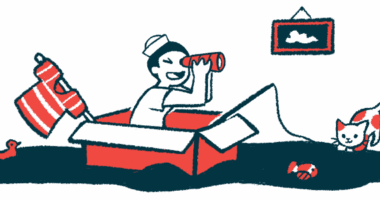Imagining a World Without Ableism


A friend and I were sitting in a dimly lit movie theater a few years ago when two guys in their 20s approached me. I couldn’t tell initially if I knew them, but after a closer look, I realized that neither was an acquaintance of mine. They each bore somber, melancholy expressions, and they appeared dutiful in their stature and mannerisms. Before I quite knew what was happening, they were both on their knees praying for me, the lone wheelchair user in the audience.
Oy, this wasn’t exactly the pre-show for “The Hobbit: The Desolation of Smaug” that I’d imagined.
It’s not the first time a scenario like this involving ableism has played out, and it’s certainly not uncommon for disabled people. These men saw me as someone who needed “fixing” because of the chair and my physical limitations, and they wholeheartedly believed it was their mission to “heal” me in a public setting. Spoiler alert: Their attempts were unsuccessful.
I’ve pondered this encounter and others like it many times. On the one hand, people like the men in this story make for great punchlines in the realm of disability comedy. Yet it also makes me wonder what it would be like if this type of painfully awkward social situation were a distant relic of the past rather than a reminder of the systemic ableism that permeates society in the present.
Recently, I started writing for a disability satire website called The Squeaky Wheel. Along with other disabled writers and creators, we produce stories such as “Rent-A-Disabled-Person for All Your Inclusive Holiday Needs!” and “Aging Liam Neeson Seeks Vengeance After Being Denied SSI Benefits.”
A piece I wrote recently sparked both praise and anger, as some readers who came across it on social media thought it was an actual news story. The headline reads, “‘Have You Tried Being Less Disabled?’ Asks Medicaid Employee to Man Requesting More Caregiving Hours.”
Admittedly, I based the article on plausible scenarios of ableism that have happened to either my friends or me, but I exaggerated the details to make it more ridiculous. But that’s the thing: So many absurd and seemingly unthinkable things that society says or does to disabled people should only be fictional, but they’re not. Our reality is rooted in the unimaginable.
Maybe I sound too idealistic when I imagine a world where others don’t view people like me as objects of pity or a world where we don’t have to fight tooth and nail to have our basic needs met. However, change and radical inclusion have to start with the imagination.
John Lennon waxed poetic about this subject in his iconic 1971 song “Imagine,” and the lyrics aptly apply to this notion of eliminating ableism:
“You may say I’m a dreamer,
But I’m not the only one,
I hope someday you’ll join us,
And the world will be as one.”
Maybe someday people like me can go to movie theaters or other public spaces without even the thought of another person taking pity on us and yearning for us to look more like them. Maybe someday.
Note: SMA News Today is strictly a news and information website about the disease. It does not provide medical advice, diagnosis, or treatment. This content is not intended to be a substitute for professional medical advice, diagnosis, or treatment. Always seek the advice of your physician or other qualified health provider with any questions you may have regarding a medical condition. Never disregard professional medical advice or delay in seeking it because of something you have read on this website. The opinions expressed in this column are not those of SMA News Today or its parent company, BioNews, and are intended to spark discussion about issues pertaining to spinal muscular atrophy.
The post Imagining a World Without Ableism appeared first on SMA News Today.




